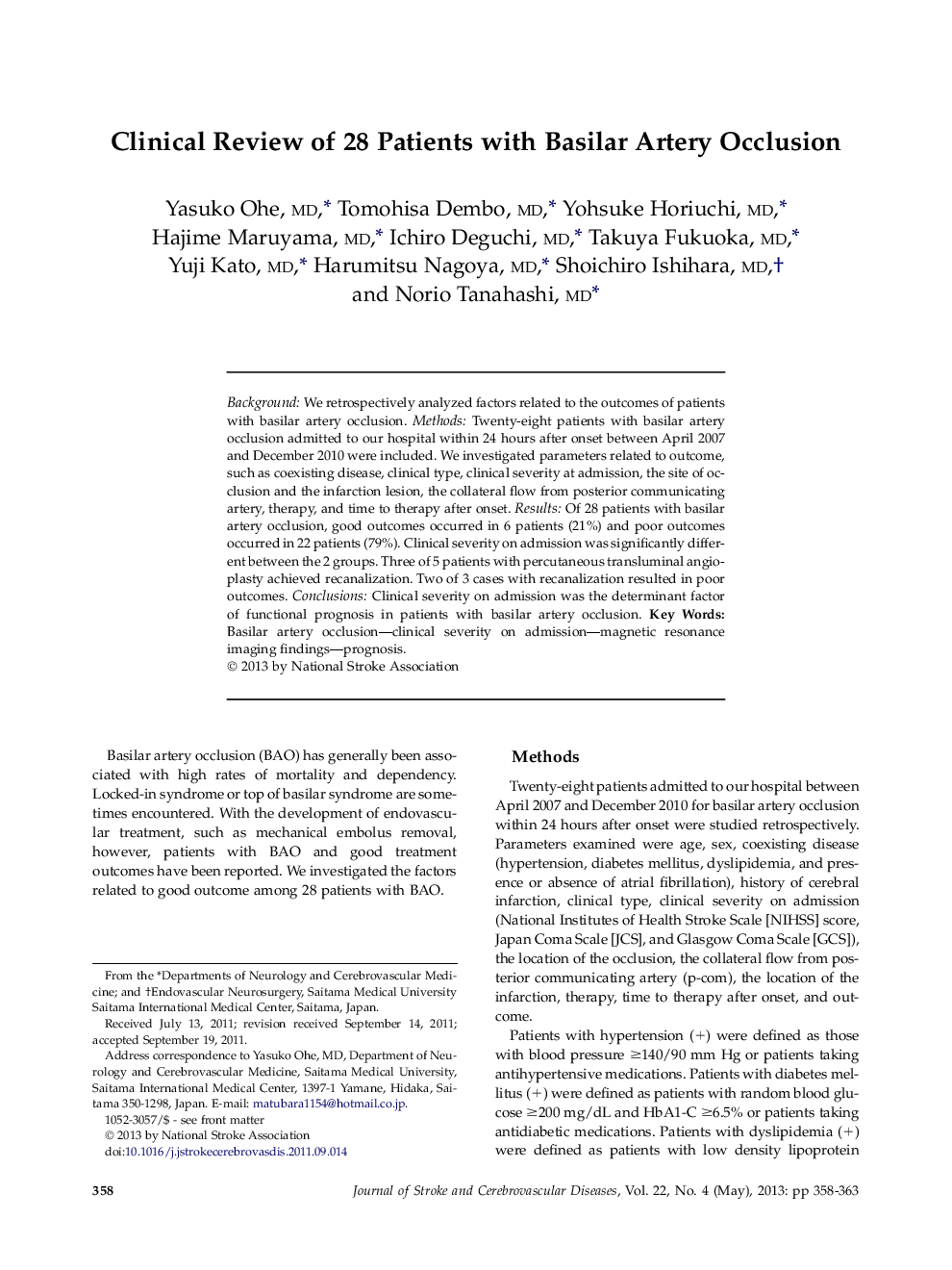| Article ID | Journal | Published Year | Pages | File Type |
|---|---|---|---|---|
| 2710815 | Journal of Stroke and Cerebrovascular Diseases | 2013 | 6 Pages |
BackgroundWe retrospectively analyzed factors related to the outcomes of patients with basilar artery occlusion.MethodsTwenty-eight patients with basilar artery occlusion admitted to our hospital within 24 hours after onset between April 2007 and December 2010 were included. We investigated parameters related to outcome, such as coexisting disease, clinical type, clinical severity at admission, the site of occlusion and the infarction lesion, the collateral flow from posterior communicating artery, therapy, and time to therapy after onset.ResultsOf 28 patients with basilar artery occlusion, good outcomes occurred in 6 patients (21%) and poor outcomes occurred in 22 patients (79%). Clinical severity on admission was significantly different between the 2 groups. Three of 5 patients with percutaneous transluminal angioplasty achieved recanalization. Two of 3 cases with recanalization resulted in poor outcomes.ConclusionsClinical severity on admission was the determinant factor of functional prognosis in patients with basilar artery occlusion.
